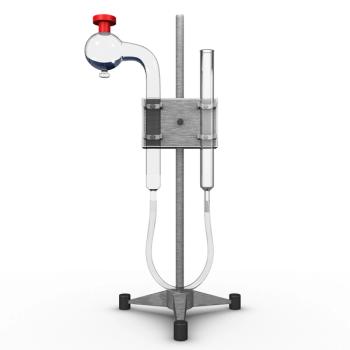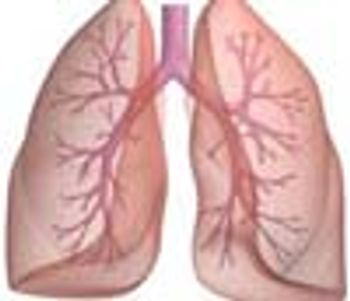
The GOLD criteria for COPD assessment have not lived up to their promise. Internationally agreed standards seem to be the real deal.

The GOLD criteria for COPD assessment have not lived up to their promise. Internationally agreed standards seem to be the real deal.

Undiagnosed lung disease in smokers, the impact of guidelines for community-acquired pneumonia in children, and climate change and asthma attacks make headlines in the respiratory news.

Obstructive, restrictive, or mixed airways disease? See what you know about asthma, COPD, and the test results used to diagnose each.

Respiratory disease is the main reason why patients visit primary care practices. This brief summary highlights the latest in research and patient care.

COPD challenges, asthma in children, smoking deaths-highlights of recent research findings in these key areas of respiratory disease.

Long-acting beta-agonists offer benefits in COPD. Not true for inhaled corticosteroids for most, it turns out.

There is emergent need to improve recognition and management of COPD in HIV-infected patients. Details here.

A new study shows that the risk of chronic obstructive pulmonary disease increases with obesity. Yet, the risk was increased in underweight persons as well.

For patients with asthma or COPD, PL554 has the potential to both reverse bronchodilation and reduce inflammation more quickly and with fewer adverse effects.

Patients respond to 5 days of corticosteroid therapy just as well as to 14 days of therapy, according to a study.

Emphysematous cholecystitis is a rare condition that is the result of infection with Clostridium perfringens and other gas-producing organisms including Escherichia coli, Bacteroides fragilis, and Klebsiella species.

Older patients with chronic obstructive pulmonary disease are at higher risk for plaque formation in the carotid artery, increasing their risk of stroke.

Diagnoses of chronic obstructive pulmonary disease may increase with the use of a 5-question patient-administered survey.


What are the most effective ways to reduce the incidence of acute exacerbations of chronic obstructive pulmonary disease?



During an interval examination, a new pulsatile mass is detected slightly above the umbilicus of a 72-year-old man with chronic obstructive pulmonary disease (COPD). He has not noticed any abdominal pain or any other new symptoms.

Patients who followed a written action plan for exacerbations of chronic obstructive pulmonary disease (COPD) had shorter recovery times, reported Canadian researchers.

Instruct patients with chronic obstructive pulmonary disease and asthma to discard their rescue albuterol inhalers 2 to 3 months after opening.

In adults who present with persistent cough following an upper respiratory tract infection but who have no history of asthma or chronic obstructive pulmonary disease, lung findings are usually “normal” on auscultation.

Almost 90% of employers consider employee medication compliance to be a prime health management objective, according to a study by the National Pharmaceutical Council (NPC).1 The majority of study respondents reported that they are analyzing or have plans to analyze prescription data to determine medication compliance for select health conditions.

Since the 2006 launch of the Medicare Part D prescription drug benefit, the Centers for Medicare & Medicaid Services (CMS) has required all Part D sponsors, including Health Net, to offer free medication therapy management program (MTMP) services to members at high risk for drug-related problems.

Inhaled medications are the cornerstoneof therapy for most of themore than 30 million Americanswho have asthma or chronic obstructivepulmonary disease(COPD). Unfortunately, many ofthese patients use aerosol deliverydevices incorrectly.

Opioid analgesics provide effective treatment for noncancer pain, but many physicians have concerns about adverse effects, tolerance, and addiction. Misuse of these drugs is prominent in patients with chronic pain. Recognition and early prevention of misuse helps physicians identify the causes and proceed with patient care. Most persons with chronic pain have a significant medical comorbidity (eg, asthma) that affects treatment decisions.